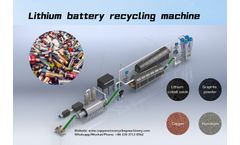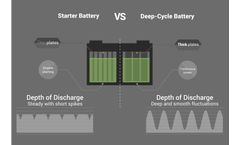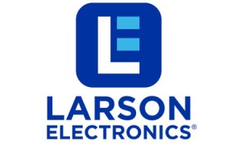Battery Discharge Articles & Analysis: Older
24 articles found
Therefore, all batteries must be disposed of safely and responsibly. Well, how to dispose of waste lithium battery? ...
Lithium-Ion Batteries Explained Li-ion batteries have changed the way people store energy. ...
Analyzing the financial study of energy storage is an enormous task and contains significant risk. Solar panels have been demonstrated to perform reliably for decades and operate relatively simply with a one-directional flow of ...
Introduction: In the world of energy storage, the lead acid battery stands as a venerable workhorse. Developed in the mid-19th century, it is one of the oldest rechargeable battery technologies still in widespread use today. ...
Working Principles: When a lead-acid battery discharges, a chemical reaction occurs between the lead plates and the sulfuric acid electrolyte, producing electrical energy. ...
Discharging a lead-acid battery is an essential part of battery maintenance, as it helps to prevent sulfation, a process that occurs when a battery is left in a discharged state for an extended period. ...
Let’s take a look together and find out what is the best deep cycle battery on the market. We’ll help you understand why it’s ...
The difference between these two numbers typically reflects the fact that some lithium ions are lost during the charge/discharge process. The higher the Coulombic efficiency, the less capacity the battery loses in each charge/discharge cycle, and the longer its potential lifespan. ...
General Motors recently took a $1.8 billion hit for battery warranty and replacement costs for the Chevrolet Bolt, according to CNBC, and it is not the only major OEM challenged by battery malfunction. ...
This can be caused by overcharging, deep discharge, overheating to battery or manufacturer defects, or environmental reasons. ...
The project offtake would have control as to when the storage/battery is charged and discharged. This would be subject to the terms of the agreement set forth in the PPA contract. ...
On our website recently, we started to ask and answer a fundamental question that is critical for the global energy storage industry to address – If cobalt is so bad, why are some companies still using it in lithium-ion ...
Batteries have a limited number of discharge or recharge cycles before the battery chemistry runs out. Cells will fail if the chemistry is exhausted. Soon the battery needs replacement. If someone frequently uses the battery, the discharge rate is higher. A higher discharge rate ...
ByAKCP
Concept overcharging, or overcharging, is a type of lithium-ion battery abuse where the charging voltage of a lithium-ion battery is too high above its charging cut-off voltage. Lithium-ion battery charging usually set charging cut-off voltage, the process needs to use constant current and constant voltage charging method to avoid overcharging ...
In order to compensate for losses when the battery is in service, a voltage higher than the OCV has to be applied to the battery. ...
Introduction This is a question that is often asked, and the answer is relatively simple. A discharge test measures the capacity of the battery and a battery monitoring system is a maintenance tool. ...
As the valve-regulated battery uses a poor liquid design, the electrolyte poured into the battery is adsorbed on the fiberglass board. When the charging current increases, the gas needs to be released through the safety valve, which causes the battery to lose water and increase the internal resistance. The capacity decay and generate a lot of ...
Overcharging a rechargeable battery causes its early than anticipated failure. Deep discharging the battery. Deep discharging is bad for the health of any rechargeable battery. For example, deep-cycle batteries like lead-acid batteries are created to be routinely deeply ...
For example, general purpose SLA batteries should not be deep cycled, as continuously discharging below 50-70 percent of its rated capacity could damage the units. ...
Lithium ion batteries have been in the news quite a lot recently, and not all of it has been positive. ...


















